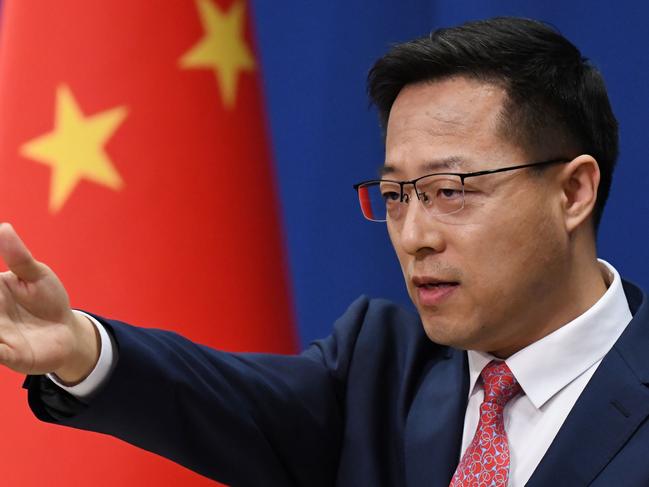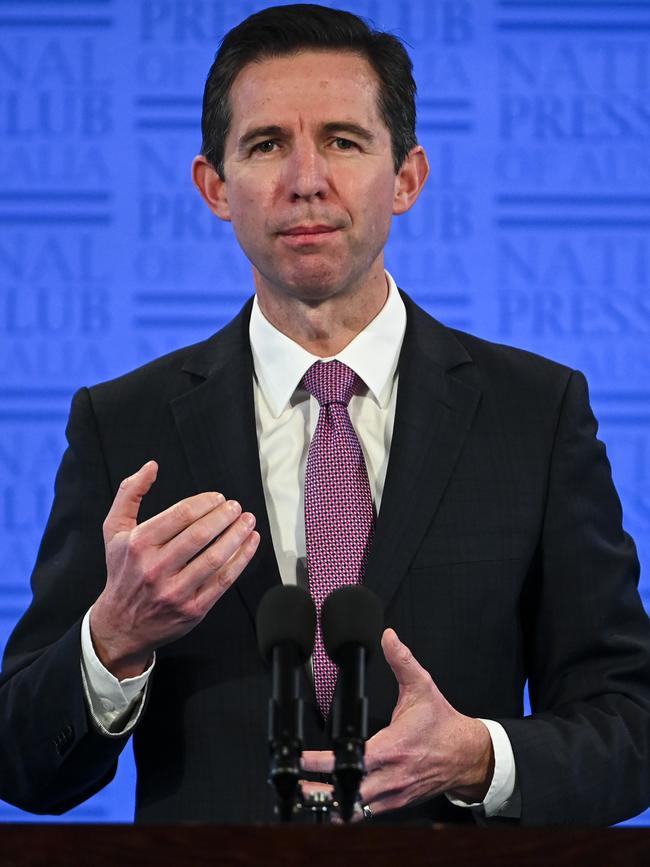China denies Australia wine probe is political
China says its anti-dumping probe is ‘normal’, but added it hoped Australia would ‘do more things that are conducive to mutual trust’.
China has rejected suggestions that its anti-dumping probe into Australia’s $1 billion-plus wine export market is political.
A spokesman for China’s Ministry of Foreign Affairs, Mr Zhao Lijian said the move, announced by China’s Ministry of Commerce on Tuesday, was a “normal anti-dumping investigation”.
Questioned on the issue at the regular MFA press conference, Mr Zhao said the inquiry into wine from Australia – which dominates the Chinese import market – followed a complaint from the Chinese wine industry lodged on July 6.

“After examination according to law, the application is considered to meet the statutory requirement and an investigation was initiated on August 18,” he said.
“The Chinese competent authorities will conduct the investigation in a legal, fair and just manner.”
But in a warning to the Morrison government, he said a good political relationship between countries needed “the joint efforts of both sides” and hoped that Australia would “do more things that are conducive to China-Australia mutual trust and co-operation”.
Australian wines have overtaken French wines as the largest source of imports into China in the wake of the China-Australia Free Trade Agreement which came into force in December 2015, which led to a removal of all tariffs on wine exports from January 2019.
This week’s announcement of the anti-dumping probe into Australian wine exports, came after months of speculation about the potential for retaliation following comments by China’s Ambassador to Australia, Mr Cheng Jingye, that Australian wine, beef, tourism and education exports to China could be harmed as a result of increasing political tensions.
Australia’s relations with China have been under increasing strain since the Turnbull government banned Chinese telecommunications giant Huawei from supplying equipment for Australia’s 5G network in 2018 and Turnbull quoted Chairman Mao in explaining the reasons for introducing new foreign interference laws.
Beijing has been particularly angry at the move this year by the Morrison government to call for a probe into the origins of the coronavirus, in a way which it saw as pointing the international finger directly at China.
Announcement of the anti-dumping inquiry, which will take more than a year to complete, follows the introduction of tariffs of some 80 per cent on the import of Australian barley into China earlier this year and a suspension of beef exports to China from four Australian abattoirs.

Federal Trade Minister Senator Simon Birmingham said the anti-dumping move was “disappointing” and “perplexing”.
He said the government would work with the wine industry to “prevent the application of tariffs”.
But a similar long running investigation into Australian barley exports – mainly from Western Australia – to China which saw extensive input from the Australian industry and Austrade, failed to head off tariffs which almost doubled the price in China.
Australian wine exports to China have more than doubled since the start of the free trade agreement from $420 million in 2015-16 to $1.1 billion in 2019-20 from a combination of tariff removal and a love of Australian wines – from Rawson’s Retreat to Penfolds- by the increasingly affluent middle class Chinese consumers.
The anti-dumping move follows a tough year for the Chinese wine industry which has seen sales hit badly as a result of the pandemic which began in January.
It saw the closure during the first few months of the year of many restaurants- the prime outlet for wine sales.
The chief executive of wine industry body, Australian Grape and Wine, Mr Tony Battaglene, told The Australian that the sharp fall off in demand for wine in China this year as a result of the pandemic could have been a factor in prompting the domestic wine industry to lodge a complaint with the Ministry of Commerce against Australian wine, the biggest single source of foreign supply.
But the targeting of Australian wine has been a worry for some time following the Ambassador’s comments with Treasury Wine Estates’ chief executive Tim Ford telling The Australian last week that he was worried that wine sales could be caught up in any political tension between Australia and China.
TWE shares fell on the ASX on Tuesday in response to the news, wiping some $1.2 billion off its market capitalisation.
Asked whether the anti-dumping investigation was politically motivated, MFA spokesman Mr Zhao said “a sound and stable China-Australia relationship serves the common interests of both countries, but it calls for the joint efforts of both sides”.
“We hope the Australian side will work with China in the same direction, and do more things that are conducive to China-Australia mutual trust and co-operation and in line with the spirit of our comprehensive strategic partnership”.








To join the conversation, please log in. Don't have an account? Register
Join the conversation, you are commenting as Logout